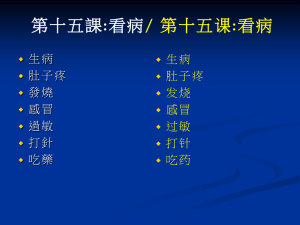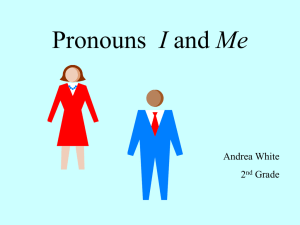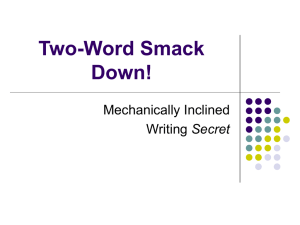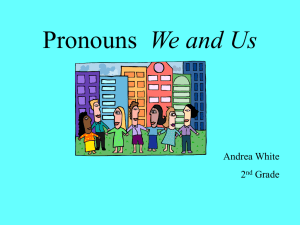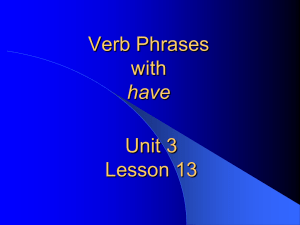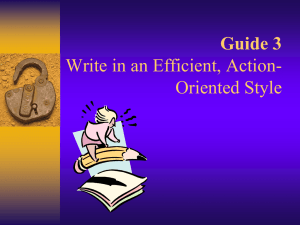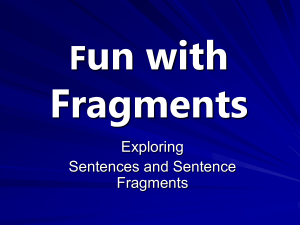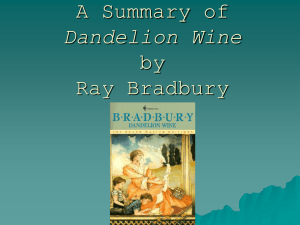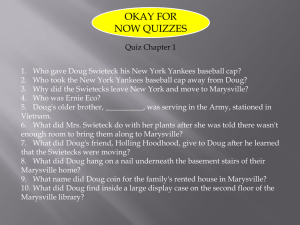Lesson 3 - Faculty
advertisement
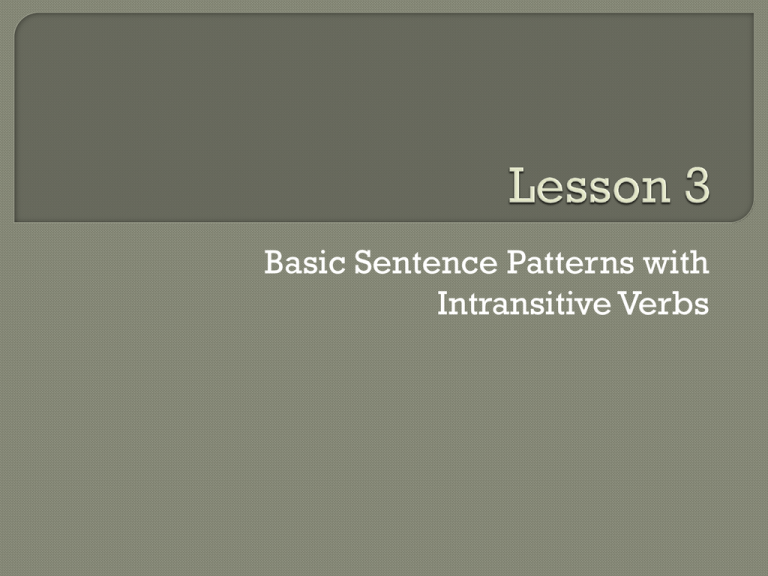
Basic Sentence Patterns with Intransitive Verbs Subject and verb relationship Basic unit of meaning (written and oral) Five basic patterns Verb determines pattern • Intransitive • Transitive 1. 2. 3. 4. 5. S S S S S Iv Iv Tv Tv Tv SC DO IO DO DO OC 1. 2. 3. 4. 5. Doug stumbled. Doug is a goofball. Doug kicked pinecones. Doug gave Mary a kiss. Doug called Mary beautiful. Verb is key to recognizing patterns Intransitive Verb Transitive Verb Basic Patterns with Intransitive Verbs 1. S Iv 2. S Iv SC 1. S Iv. Doug stumbled. •Action of the verb stops with the verb. • No action transfers across the verb to an object because there is no object. 2. S Iv SC. Doug is a goofball. • No action transfers across the verb to an object because there is no object. •Instead, there is a connection. The complement either renames or modifies the subject. •The verb links the subject to its complement. Again, the Two Basic Patterns with Intransitive Verbs 1. Doug stumbled. 2. Doug is a goofball. 2. S Iv SC. Doug is a goofball. • The intransitive verb in this pattern is usually a form of the verb “to be”: is, are, was, were, etc. They express states of being. •In this pattern the “to be” verbs are called linking verbs. •To be verbs can also function as auxiliary (helping) verbs in verb phrases (to be studied in a later lesson). 2. S Iv SC. Doug became a goofball. • Intransitive verb in this pattern can also be the following: •Feel, seem, appear •Become, turn, grow, get •Look, smell, taste, feel, sound 1. 2. 3. 4. 5. S S S S S Iv Iv Tv Tv Tv SC DO IO DO DO OC Basic Patterns with Transitive Verbs 3. 4. 4. S Tv DO S Tv IO DO S Tv DO OC 3. 4. 4. Doug kicked pinecones. Doug gave Mary a kiss. Doug called Mary beautiful. 2. S Tv DO. Doug kicked pinecones. • Action transfers across the verb to an object . What was kicked? pinecones •Objects of transitive verbs can be nouns or pronouns. 2. S Tv IO DO. Doug gave Mary a kiss. • IO indirectly receives action of verb. •What was given? A kiss. •To whom was it given? Mary 2. S Tv DO OC. Doug called Mary beautiful. • OC describes or renames the Direct Object.


